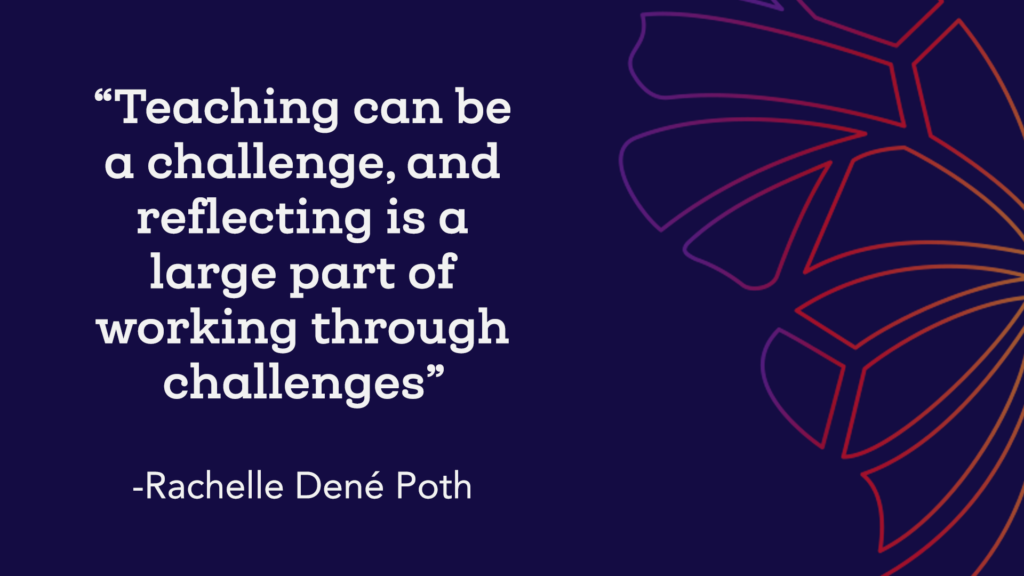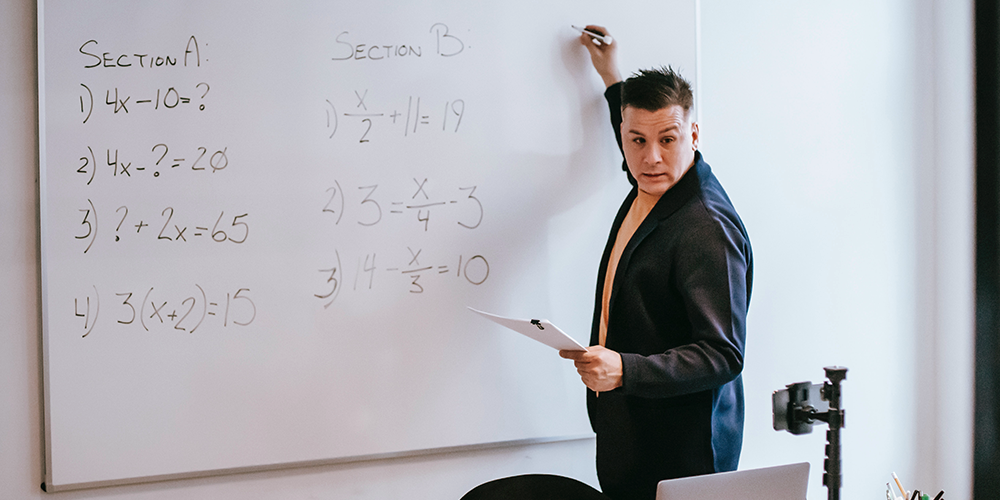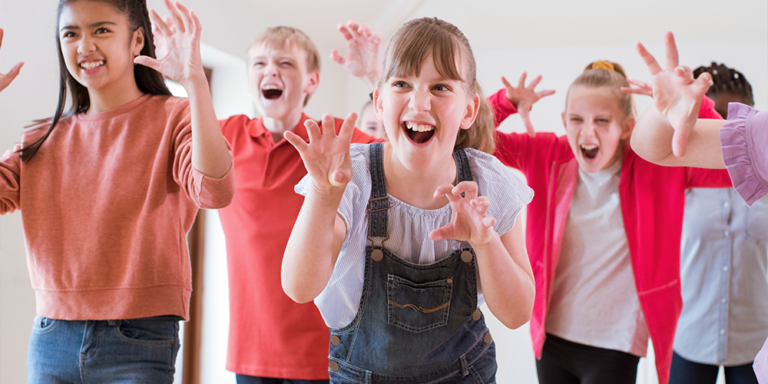As educators, making time for reflection is essential. John Dewey stated, “We do not learn from experience… we learn from reflecting on experience.” Reflection enables us to evaluate our actions, which leads to more impactful teaching and learning. Ongoing reflection nurtures ongoing improvement, pushing us to keep learning and use our experiences to plan our next steps. Busy days can make it challenging to keep our thoughts fresh about a class we taught, a conversation we had, or an interaction that could have gone better. There are different ways to collect these experiences. Some educators keep a small notebook or easy-to-reach post-it notes throughout the classroom. Below, I’ve provided four ways to help you incorporate reflection into your daily teaching practice.
Teaching can be a challenge, and reflecting is a large part of working through challenges. In the past two years, we have had to be flexible, finding new methods, tools, and opportunities to explore new ideas for our classrooms. To bring our best selves into our classrooms each day, we must regularly evaluate our teaching practice and use this reflective process to grow professionally and personally, continuing to build our skills, enhance self-awareness, and develop a greater understanding of our own learning needs. Through metacognition, we become more aware of our own actions and learning experiences on our journeys toward personal and professional growth. As educators, we need to identify personal strengths and weaknesses in our teaching practice, revising and setting new goals so that we can best provide for our students.

Here are four suggestions for developing daily reflective practices and modeling them for students or colleagues.
1. Supportive Relationships
It starts with building relationships with our students and colleagues to promote open conversations guiding us to reflect on our work. We need to create a space where students feel comfortable answering questions and making mistakes, where failures are accepted as part of the learning experience, and where teachers model the same for students. By encouraging students to provide feedback, we model the need for reflection and how it helps us all to grow.
2. Blogging
Whether using traditional paper and pen or an online space, blogging has become a great medium for educators to write about our work in the classroom, sharing challenges, frustrations, positive thoughts, or anything in between. Taking time to write down some of our thoughts and takeaways provides tangible things that we can review as we set professional goals and continue evaluating our own work.
3. Podcasting
The power of voice is also effective for reflection. Apps like Voice Memos or Voxer can help you think through your professional practices, share ideas, and describe challenges and how you pushed through. Voice recordings are a great way to help others learn through your experiences. I collect voice recordings of my thoughts with Voxer, which helped me create my own podcast three years ago. Most of the episodes are conversations with myself, talking through and evaluating my professional growth. I know that I’ve helped other educators to reflect on their practice as well. When others listen to your thoughts, it guides them to reflect and supports them in their own learning journey. Sharing reflections with our professional learning network (PLN) is important for growing as a supportive learning community.
4. Video Reflections
The idea for video reflections came from a student a few years ago. She recorded short videos while working on her project-based learning (PBL) project to capture the essence of her experience. Initially she didn’t intend to share it with classmates or even with me. However, she ultimately decided to embed her reflections on a Padlet that she could return to, show her thoughts on how she was learning throughout the entire PBL process. Video is a powerful medium for helping educators build confidence and review their professional growth. There are a lot of options out there to record your teaching. Watching yourself teach, or having others record and observe you, can feel uncomfortable, yet it leads to improved practices when you are able to analyze your practices, evaluate your rate of speech, consider how well you explained ideas, determine student engagement, and many other important components of teaching. Recording videos of lessons that you’ve taught is a great reflection tool because it gives you the chance to focus on key parts of your lesson delivery. You can also share videos with a supportive group as a way to give one another feedback.

Learning Through Metacognition
Regardless of our professions or specific roles, we need to reflect regularly on many things throughout the day: our actions, our decisions, and their impact on others. This self-awareness keeps us growing personally and professionally. After teaching a lesson, consider questions such as:
- How do I think it went?
- What would I change?
- What can I improve upon?
These questions can help guide us to reflect on the activities we choose for our lessons and the lesson design in itself. We can also ask students and colleagues for feedback that can guide our reflection. This might make us feel vulnerable, yet it is essential for our growth, for better meeting our students’ and colleagues’ needs, and for becoming self-aware to evaluate our own skills and growth. We must also model this practice so that our students can develop their own reflective practices and build metacognition skills to prepare for their future. Metacognition enables us to reflect on who we are, what we know, what we want to know, and to get to that point.
My four suggestions above are just a few ways to reflect. The most important thing is finding a method and media that works for you. Reflecting is necessary for evaluating our actions. We can explore who we are, whether looking at the qualities and traits that we convey, our own behaviors, or how we interact with others. It’s important that we continue to understand ourselves so that we can bring our best selves every day to our families and to those with whom we work. By supporting each other in this effort, we will all incorporate it into our daily practice as we continue to grow as educators, empowering our students and those we lead with a strong reflective practice for personal and professional growth.






